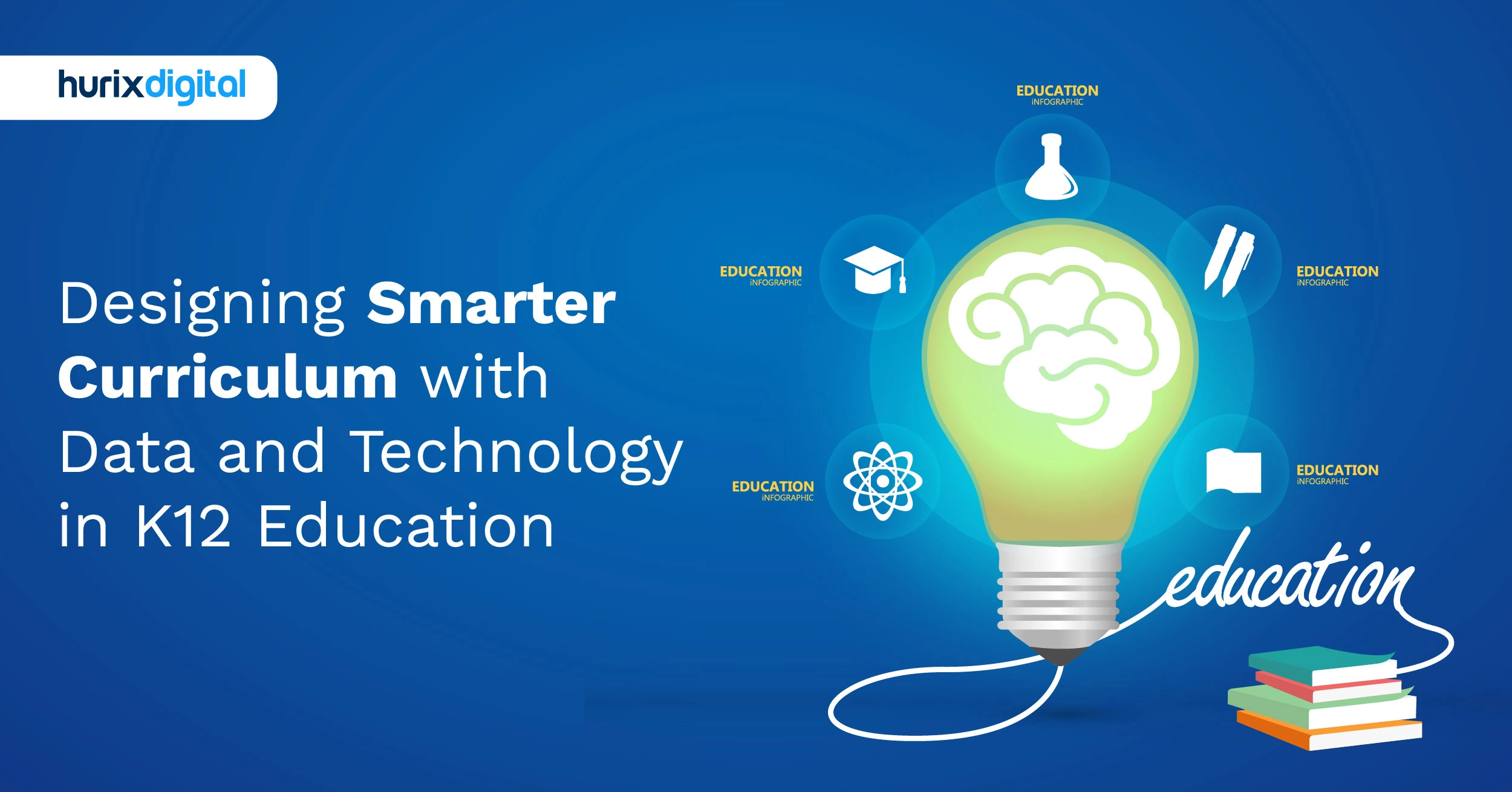
7 Best Education Tech (EdTech) Companies for K12 Institutes in 2025
Summarize with:
The article provides an overview of the top 7 education tech companies for K12 institutes to consider partnering with, based on their innovative offerings and significant funding received. It aims to help institutions identify the right edtech partner to meet their specific goals and needs.
The EdTech space continues to attract increased private equity and venture capital investments due to the COVID-induced boom. In 2020 alone, the K12 sector garnered $35.9 billion from investors, according to The Learning Council.
The spending was utilized to provide remote learning resources to students and update classroom technology, including the software and hardware systems. This inadvertently led to the rise and proliferation of education technology companies.
But how do you weed out the education software companies that are just part of the noise and pick the ones that really stand out? Read this article to skip the painstaking research and get yourself familiar with the 7 best K12 education software and EdTech companies.
Table of Contents:
- What are the 7 Best Education Tech (EdTech) Companies for K12 Institutes in 2025?
- Role of EdTech Companies for K12 Institutes in 2025
- To Sum Up
- Frequently Asked Questions (FAQs)
What are the 7 Best Education Tech (EdTech) Companies for K12 Institutes in 2025?
1. The Minerva Project
Established in 2011 by Ben Nelson, The Minerva Project focuses on an evidence-based learning approach. Ben seeks to reform higher education by nurturing critical wisdom in students. Since its launch in 2011, The Minerva Project has expanded to 10 countries across the globe.
Minerva teaches students that there are many ways of thinking and that they need not adhere to a template of what and how to think. It accomplishes this by teaching them interdisciplinary education concepts and encouraging them to apply them across diverse disciplines. Undoubtedly, The Minerva Project is one of the top K-12 education companies in the U.S.
Let’s look at:
- Aids in critical thinking and problem-solving skills through active learning.
- Provides an extremely diverse student body and faculty for a richer learning experience.
- Requires a significant time commitment and strong self-directed learning skills.
- It may not be suitable for everyone due to its rigorous nature and potentially high cost.
2. Panorama Education
Panorama offers tools to measure student success, support social-emotional learning, and capture feedback from students. The company offers an all-in-one SaaS platform for schools. You can monitor student progress, guide student interventions, and create district-wide reports using their tools for student success. Apart from that, the social-emotional learning assessments allow you to create an environment where students can develop their emotional and social capabilities.
Lastly, using feedback surveys (distributed to students, families, and teachers), you can continue realigning your strategy according to their needs and goals.
Let’s look at:
- Improves school environment and student engagement by addressing social-emotional needs.
- Offers data-driven insights to support targeted interventions and improvements.
- Effectiveness depends on school leadership and implementation strategies.
- You might face data privacy concerns if the proper protocols are not implemented.
Also Read: Top 15 K12 Curriculum Development Companies in 2023 for Online Learning
3. Hurix Digital
Hurix Digital is an all-in-one education tech company that offers eLearning solutions for higher education institutions and K12 institutes. Besides, Hurix Digital also offers a robust content delivery platform to help higher-ed institutions explore, measure, and track all learning activities in one place.
- Microlearning: It reduces the learner’s cognitive overload by providing smaller, more focused content segments rather than a comprehensive course. This allows students to retain the information and recall it when needed.
- Story-Based Approach: Who doesn’t like stories? This age-old method is carefully aligned with learning objectives to engage students and make learning fun.
- Gamification: There’s a reason why people love games – the thrill, excitement, and satisfaction of achieving something, followed by rewards. Hurix offers gamification solutions to enhance student engagement.
- Scenario-Based Learning: In this method, students learn by making decisions in a simulated real-life environment.
- If you’re looking for a best-in-class education technology service that does it all, Hurix Digital is your answer.
Let’s have a look at:
- Customized learning paths based on your unique strengths and weaknesses using AI
- Learn from the best language teachers who are rigorously vetted and trained by Hurix Digital.
- Engaging and interactive lessons that keep students and teachers motivated and focused.
- Hurix Digital’s exclusive programs might have waitlists due to high demand.
- Powerful technology might have a slight learning curve for beginners.
4. Outschool
Amir Nathoo founded Outschool in 2015 with the vision of giving wings to every talent. Since then, Outschool has become one of the top education tech companies and has raised $130 million in funding. By connecting learners with real-life teachers in small-group settings, Outschool lets students explore everything from literature, algebra, coding, languages, and chemistry to cooking, Pokemon, and Minecraft.
Outschool offers more than 140,000 engaging online classes to students aged 3 to 18. It also offers a one-on-one learning program for personalized tutoring in any subject.
Let’s have a look at:
- Provides a huge variety of enrichment classes that go beyond the traditional curriculum.
- Offers flexibility and allows students to explore their passions with diverse instructors.
- The quality of classes can vary depending on the instructor.
- It may require parental involvement or supervision for younger students.
5. Nearpeer
Nearpeer is a pioneer EdTech company specializing in student engagement solutions. Founded in 2017, it allows students to conduct targeted searches on social media platforms to connect with their peers who have similar interests. For Example, students pursuing similar areas of study can connect using targeted searches on Instagram and Facebook. Thanks to its powerful data analytics functionality, Nearpeer allows higher-ed institutions to recognize student interaction patterns.
Higher-ed institutions that wish to inculcate a sense of community in their students should partner with Nearpeer. This would likely help you improve student retention.
Let’s have a look at:
- Provides personalized tutoring from relatable peers.
- Offers a convenient way to get extra help outside of school hours.
- Effectiveness depends on the experience and expertise of the tutors.
- It may not be suitable for students needing in-depth or specialized tutoring.
6. AllHere
AllHere uses artificial intelligence (AI) to interact with students and their families using chatbots and monitor student attendance. Joanna Smith founded AllHere in 2017 to prevent student-related problems before they arise.
This AI-powered platform sends alerts or reminders to students’ families and facilitates interactive “nudges” through two-way messaging. Families can also text questions to the AllHere chatbot, allowing higher-ed institutions to track the reasons for absenteeism.
By doing so, they can offer proactive and personalized intervention outreach to families. Ultimately, this helps reduce drop-out rates and increase enrollment and engagement. No wonder this education tech company has received $8 million from investors.
Let’s have a look at:
- Makes learning engaging and interactive through immersive VR simulations.
- Offers the potential to explore new environments and cultures virtually.
- VR technology access and cost might be a barrier to entry for some smaller schools and students.
- Limited content library and potential for novelty to wear off.
7. NovaKid
Many students who otherwise have no dearth of talent or skills are misguided because they lack access to the right guidance or mentorship. Every student needs the right kind of exposure to pursue or find what they love.
Mentor Collective is one of the leading education tech companies. It fills this gap by connecting students with mentors who empower students by forming meaningful connections and helping them on their journey.
Founded by Jackson Boyar and James Lu Morrissey in 2012, Mentor Collective is focused on improving the completion and retention rates at universities. Based on student surveys and research-driven algorithms, they match the perfect mentor for a student.
Moreover, they employ large-scale mentorship programs to train and recruit mentors who monitor key outcomes, including career results, self-efficacy, and retention rates.
Let’s have a look at:
- Connects students with qualified teachers who provide a fun and engaging learning environment.
- Offers a convenient way for children to learn English from the comfort of home.
- It may not be suitable for children who require a more structured learning environment.
- The effectiveness depends on the student’s age, motivation, and level of parental involvement.
Role of EdTech Companies for K12 Institutes in 2025
As a result of changing student demands and technology breakthroughs, the educational landscape is still changing quickly in 2025. You are under more and more pressure as a K12 teacher or administrator to provide a top-notch, individualized, and accessible education. Education technology (EdTech) businesses provide creative solutions to change conventional classrooms into dynamic learning environments. By being aware of their function, you can use their capabilities to enhance student results and expedite school processes.
1. Enhancing Personalized Learning
Facilitating individualized learning experiences is one of EdTech firms’ most important achievements. Each pupil has distinct skills and limitations and learns at a different rate.
With EdTech’s assistance:
- Real-time student performance analysis and lesson customization are features of adaptive learning platforms.
- Learning management systems (LMS) offer personalized learning environments, allowing students to grow independently.
- Data analytics can help you identify areas that require more support by providing insights into student’s performance and class records.
By implementing these technologies, You can ensure that every student gets the time and tools they need to succeed academically.
2. Supporting Teachers with Innovative Tools
It can be very difficult for teachers to balance lesson planning, grading, and student participation. EdTech businesses offer resources that improve your teaching strategies and reduce your burden.
Among the essential tools are:
- Digital Lesson Plans: Curriculum-aligned and interactive lesson plans are available on platforms like Nearpod and Edmodo.
- Automated Grading: You may spend more time interacting with students by using AI-driven tools to assess assignments and quizzes.
- Virtual Classrooms: You can hold creative online classes using video conferencing features that come with built-in collaboration tools.
These resources not only simplify your work but also enhance your pupils’ entire educational experience.
3. Bridging the Digital Divide
The digital gap continues to be a barrier to accessing high-quality education in many areas. EdTech businesses significantly contribute to reducing this gap by offering scalable and reasonably priced solutions.
Here’s how they’re changing things:
- Low-Cost Devices: Disadvantaged students can purchase inexpensive laptops and tablets through collaborations with hardware suppliers.
- Offline Learning Solutions: Thanks to platforms like Khan Academy Lite, students can access instructional materials without internet access.
- Community Learning Hubs: EdTech businesses establish learning hubs with digital resources in partnership with neighborhood organizations.
By tackling these issues, you can guarantee that all children, regardless of their socioeconomic status, have access to high-quality education.
Also Read: Why EdTech Security is the Need of the Hour in K12 Education?
To Sum Up
As a higher-ed institution, if you’re seeking to collaborate with an EdTech company, exploring opportunities with K12 education technology companies, including the list of top K12 education companies, should prove invaluable.
Almost all of these education K12 companies have garnered millions of dollars in funding, underscoring their demonstrated results or promising potential. Given their varied product offerings, your decision to partner with one of them will necessitate internal research—aligning your goals with the systems you aim to improve.
Hurix Digital provides customized digital content and technology services to improve student engagement, expedite teaching, and future-proof your educational ecosystem.
Our team of experts will help you today to find out how we can improve your classroom experience.
Frequently Asked Questions (FAQs)
Q1. What criteria are used to select the best EdTech companies for K-12 institutes in 2025?
The companies were evaluated based on innovation, impact on learning, user reviews, scalability, and ability to address K-12 educational needs.
Q2. What learning solutions does Hurix offer to educational institutions?
Hurix provides eLearning solutions, micro-learning, story-based approaches, gamification, and scenario-based learning to enhance engagement and learning outcomes.
Q3. What led to the rise of education tech companies in recent years?
The increase in private equity and venture capital investments, coupled with the need for remote learning resources, contributed to the rise of education tech companies.
Q4. How does Hurix’s gamification strategy enhance learning outcomes?
Hurix’s gamification strategy boosts student motivation and engagement, leading to improved learning outcomes.
Q5. How does Hurix’s content delivery platform benefit educational institutions?
Hurix’s content delivery platform enables educational institutions to explore, measure, and track all learning activities in one centralized location, enhancing efficiency and effectiveness.
Summarize with:

Senior Vice President – Business Development
at Hurix Digital, with over 25 years of experience in EdTech and workforce learning. He excels in business development, customer relationship management, and scaling digital learning solutions, driving global growth through innovative content, simulations, and AI‑driven training offerings
 A Space for Thoughtful
A Space for Thoughtful 

